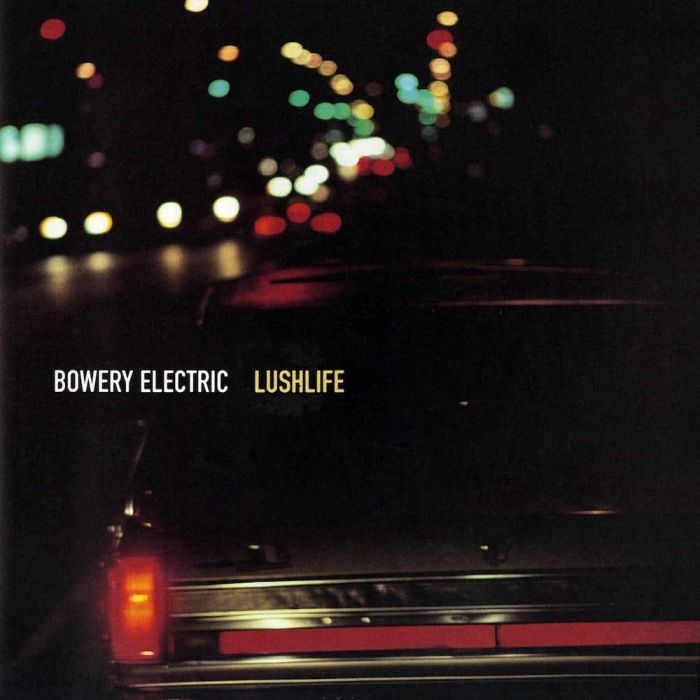Lushlife by Bowery Electric (Review)

Although Bowery Electric’s earlier stuff was influenced by the likes of Slowdive and the whole shoegazer era, their previous release Beat saw them drawing on, of all things, hip-hop and vinyl culture. Beat was chockful of hip-hop inflections, slight scratches, and a smaller presence of billowing, ambient guitar textures. They were still there, but removed to being in the background. But when all was said and done, Beat always felt like somewhat undone to me, like an album of foundations for tracks that Bowery Electric were recording before they ran out of studio time, their hard drive crashed, or something.
On the other hand, Lushlife is just that, a lush mixture of hip-hop beats, vinyl scratches, orchestral undercurrents, ominous basslines, and Martha Schwendener’s lazily seductive vocals floating over it all. Imagine something akin to DJ Shadow… if he’d spent more time listening to Seefeel instead of Grandmaster Flash. At times, the hip-hop influence gets a little out of hand; I was half-expecting some MC to start giving out props and shout-outs in the opening seconds of “Psalms of Survival” or “Saved.” However, once the rest of the elements began to filter in, especially the somber strings on “Saved,” any such conceptions were quickly dismissed.
Except for the distorted guitars on “Freedom Fighter” and the awkward jungle-ish finale of “Passages,” nearly all of the songs on Lushlife follow the same basic musical pattern, a pattern Bowery Electric adamantly refuses to deviate from. A song opens up with eerily swirling notes (“Passages”), piano tinklings and seedy noir-ish atmospherica (“Lushlife”), and other odd noises before the beats kick in hardcore (which all sound like samples from old hiphop vinyl picked up at a used record store). Then a menacing bassline begins to wind its way, like a water moccasin, below the surface as murky string arrangements slowly spread their tendrils throughout the song.
And then there’s Schwendener’s voice. Considering how lethargic and detached she sounds, her vocals still manage to pack a punch, especially with lyrics like “You will take your body like a saw to me/Living here, at the end of the world” (“Shook Ones”) or “From the air, it’s just a grid/Another square of parceled ground/Films of people living there don’t have any sound” (“Psalms of Survival”).
I can understand complaints that the album is fairly one-dimensional, because the duo never changes the pattern their songs draw on. But when I hear that ominous surge of a bassline on “Shook Ones” pushing against Schwendener’s drifting vocals, the shimmering mirage of guitars on “Psalms of Survival,” or the surging beauty of “Soul City,” I find myself caring less about the duo’s “lack of creativity” and more about just how good it all sounds to me.
So you’re probably wondering how all of this separates Lushlife from other groups that use the same elements in their music, namely Portishead, though I think that comparisons to labelmates Bows are a little more accurate. Well, the difference isn’t so much in the elements used, but rather the mood those elements achieve.
To me, Portishead’s music always sounded like something best listened to while planning a mob hit, whereas Lushlife sounds like you’re driving through a city locked in the depths of winter and pollution. There’s a pointed, jagged menace that lies just beneath the surface of Portishead’s music. There’s a menacing quality to Lushlife as well, but it’s detached and distant. Beth Gibbons voice was like a knife wrapped in velvet. Schwendener’s vocals float about like clouds of smog. Both are deadly, but in different ways.